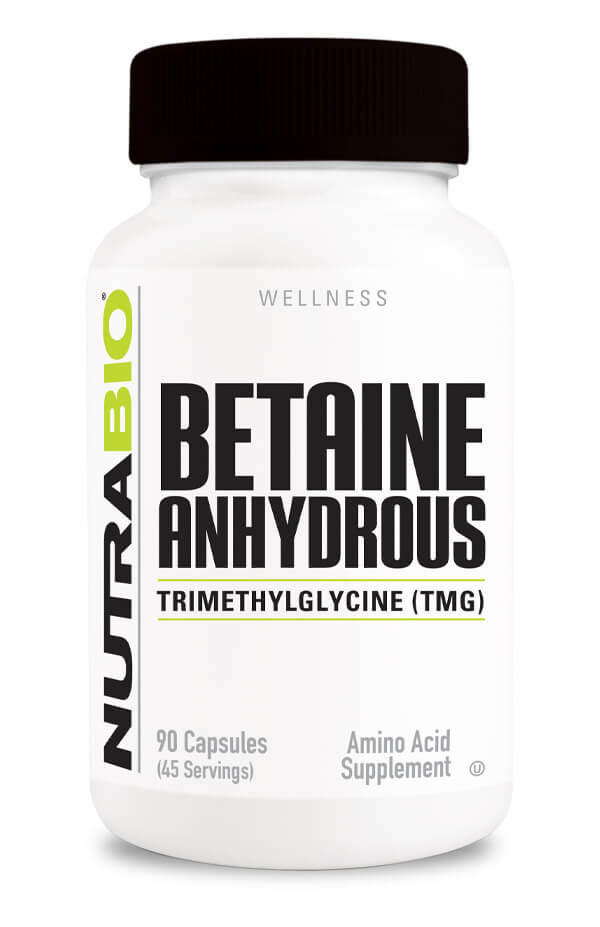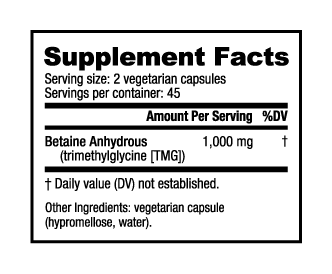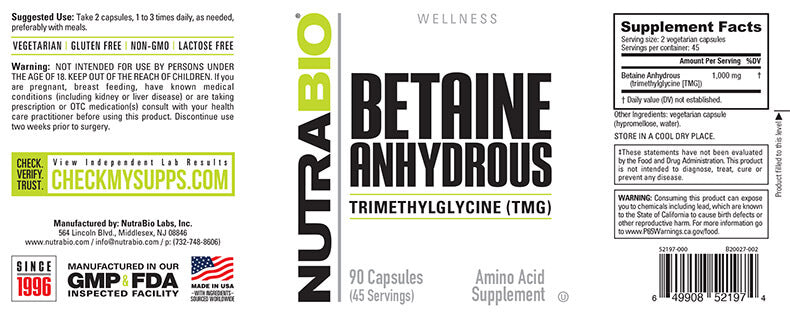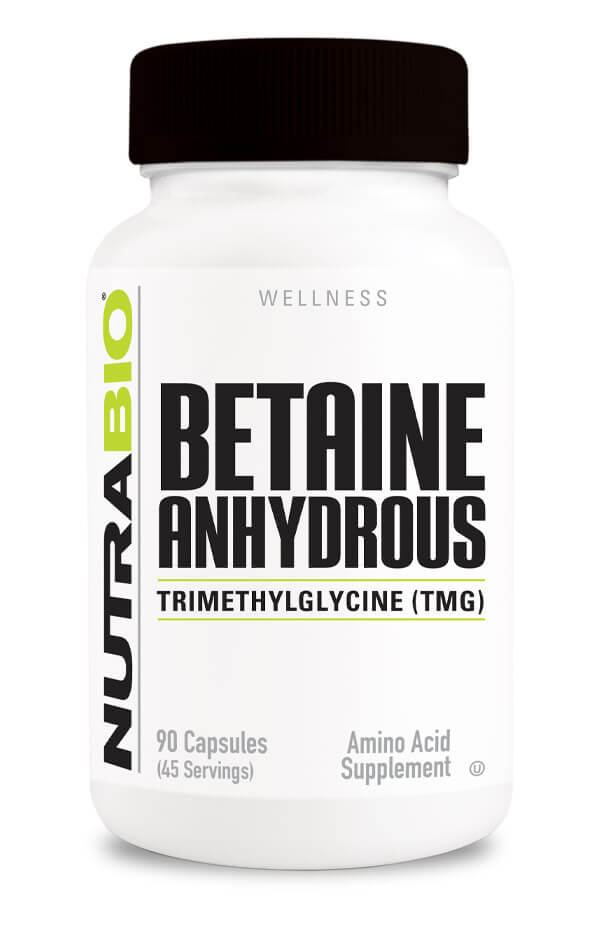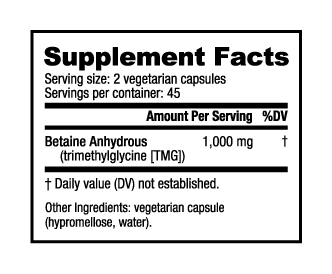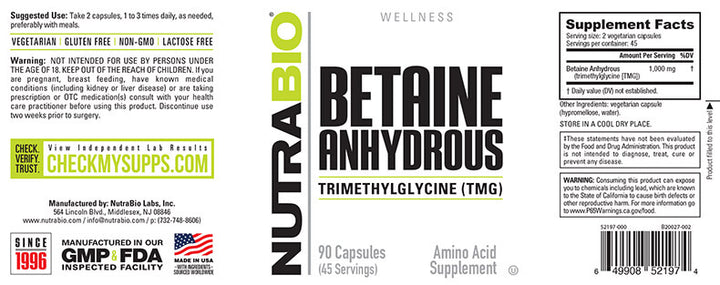NutraBio - BETAINE ANHYDROUS (TMG) - 90 Capsules
- In stock, ready to ship
- Backordered, shipping soon
Features of NutraBio TMG (Betaine Anhydrous) (500mg)
- Supports healthy homocysteine levels.
- Supports a healthy cardiovascular system.
- Supports healthy blood vessels.
- Supports healthy liver function.
- Protects liver cells from toxins and helps process fats.
- Supports normal levels of S-adenosyl-methionine (SAMe) in the cerebrospinal fluid.
For maximum bioavailability. 99.98% pure with no fillers or additives. HPLC verified.
Trimethylglycine, also known as TMG and betaine, supplementation has been shown in clinical and non-clinical studies to support a healthy homocysteine level, which in turn supports healthy cardiovascular function. In a recent study, participants who consumed 360 mg of betaine had, on average, 10% lower concentrations of homocysteine and 19% lower concentrations of reactive protein than did those who consumed 260 mg.
What is TMG (Trimethylglycine) and what does TMG do?
Trimethylglycine (TMG) protects the cardiovascular system by neutralizing harmful homocysteine while offering valuable nutritional support for healthy liver function. TMG acts as a methyl donor, providing extra methyl groups to hasten the conversion of harmful homocysteine into the biologically safe and beneficial amino acid methionine. Methyl donors, such as TMG and folic acid, are required for converting homocysteine back into methionine and for the accurate synthesis of DNA and RNA, which is essential for the production of normal cells. When a TMG methyl group is donated to a molecule of homocysteine, it converts to the non-toxic amino acid, methionine, and then into S-adenosyl-methionine (SAMe).
Impairment of methylation results in abnormal cell synthesis and elevated levels of homocysteine, a toxic amino acid and a serious health risk. Methylation can be inhibited by inadequately functioning key enzymes, excessive protein and fat intake, poor diet, inadequate intake of methyl groups, coffee, alcohol or by smoking
TMG, also known as betaine anhydrous, acts as a methyl donor which is important for a wide range of physiological reactions in the body. TMG works closely with other methyl donors including choline, folic acid, vitamin B12 and s-adenosyl-methionine (SAMe), and is also a precursor of carnitine synthesis.
In the course of its metabolism in the body, TMG is turned into dimethylglycine (DMG). In Russia, DMG is used extensively as an athletic performance enhancer, and it has recently become popular among American athletes. TMG is a less expensive alternative that may have the same effects as DMG as it does convert into DMG in the body.
TMG has also been suggested as a less expensive substitute for S-adenosyl-methionine (SAMe) for conditions for which SAMe is used, such as osteoarthritis and depression. However, there is no evidence to show that it is effective for these purposes.
FREE Shipping Available:
-on select brands
-lightweight (Ronnie Coleman voice) orders over $99.
Free shipping is NOT available on Drinks, Snacks, & Liquid products.
Orders placed by 4pm PST will go out same business
day.
Multiple carriers and transit times available at checkout.
To get most accurate shipping
options please continue checkout process.
*free shipping is only valid on supplement orders under 20 lbs.
The statements made within this website have not been evaluated by the Food and Drug Administration. These statements and the products of this company are not intended to diagnose, treat, cure or prevent any disease.


